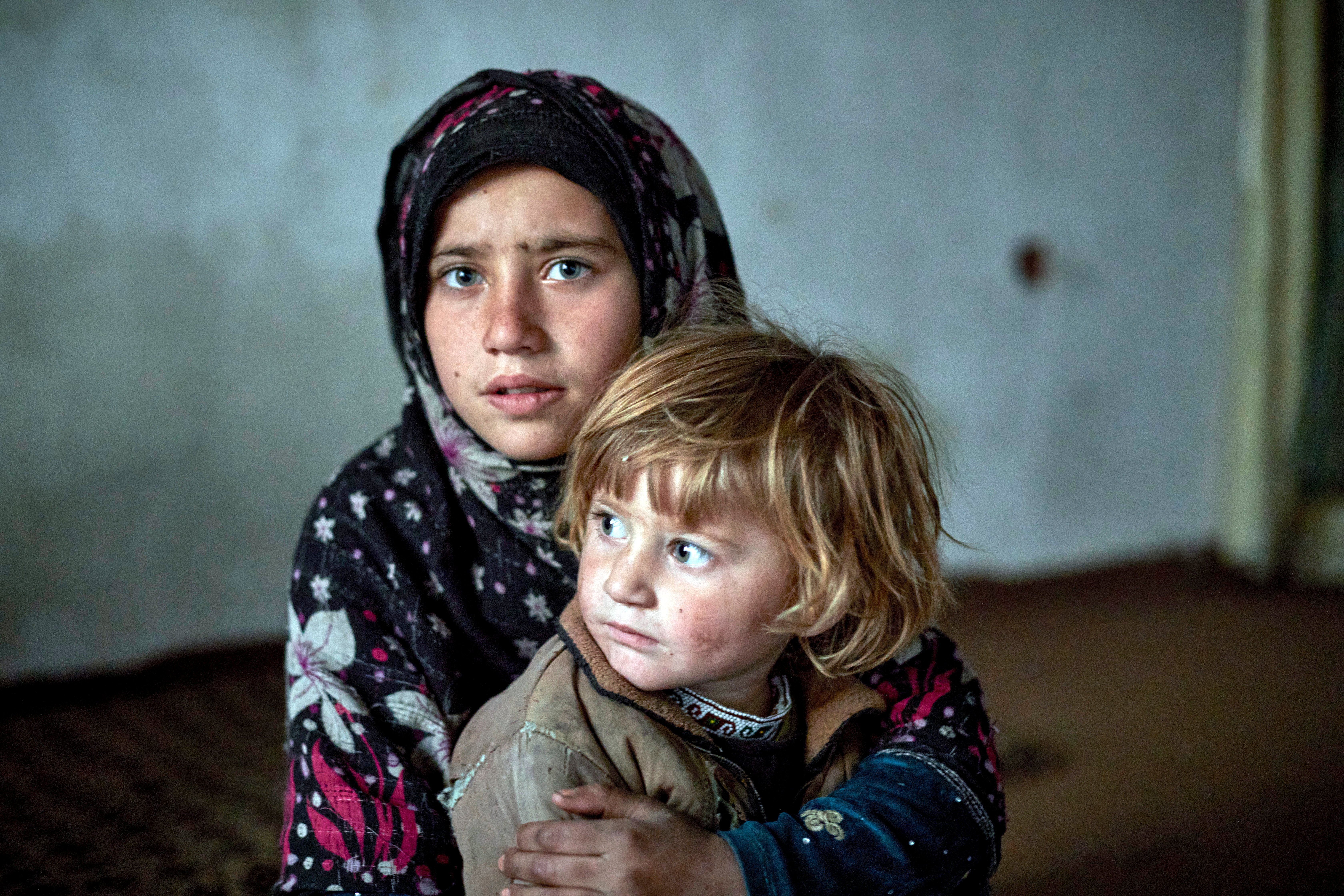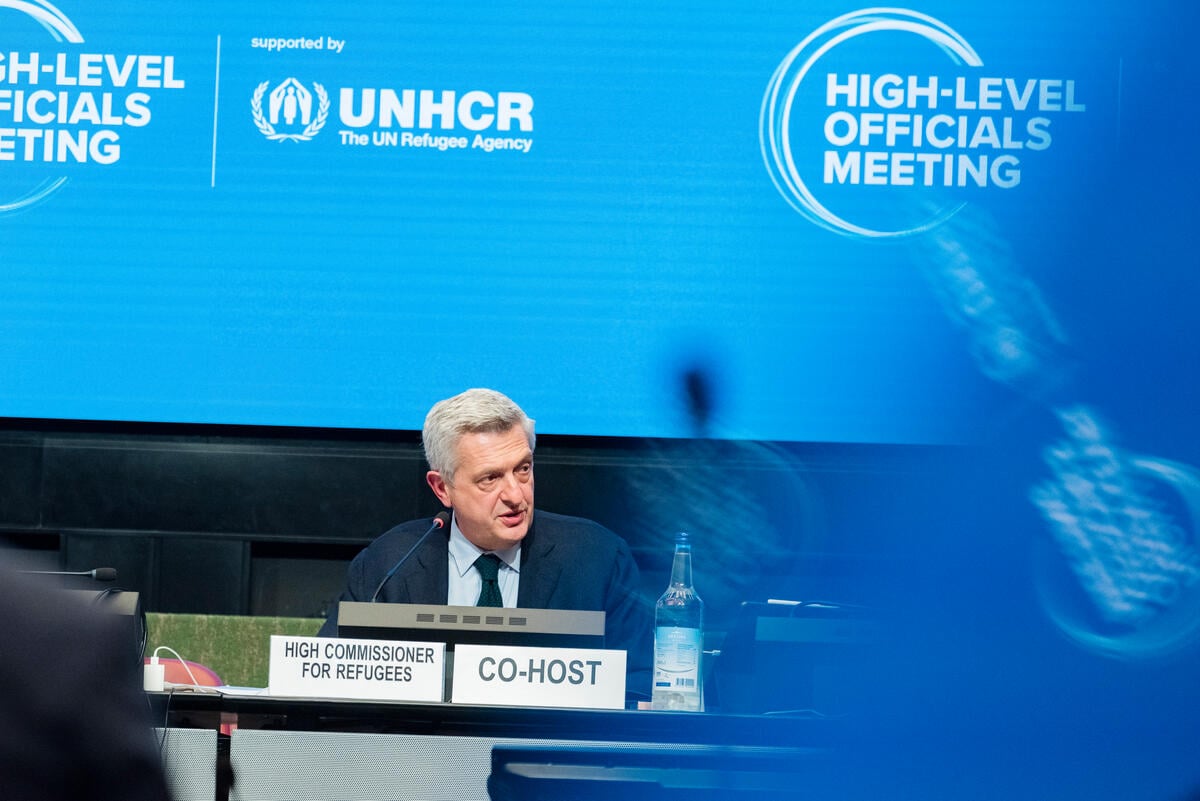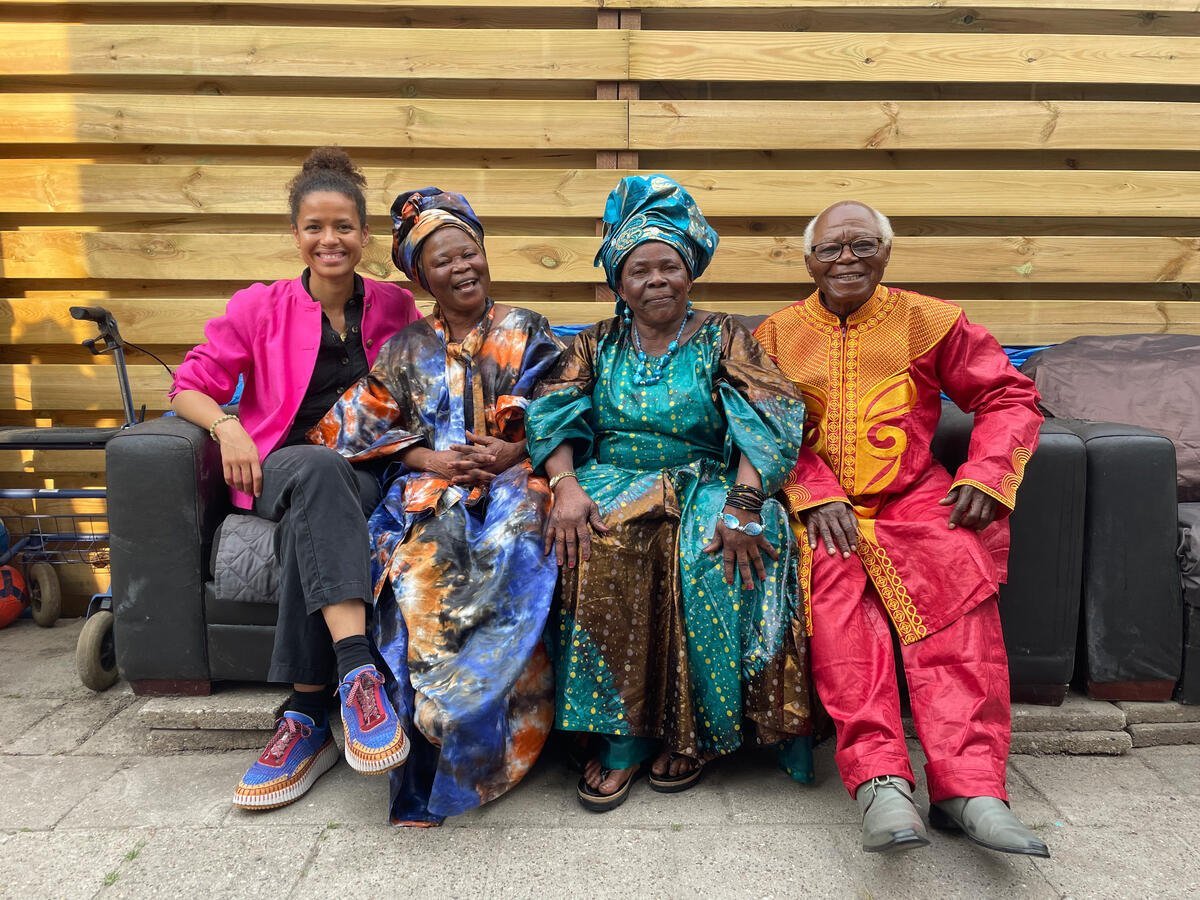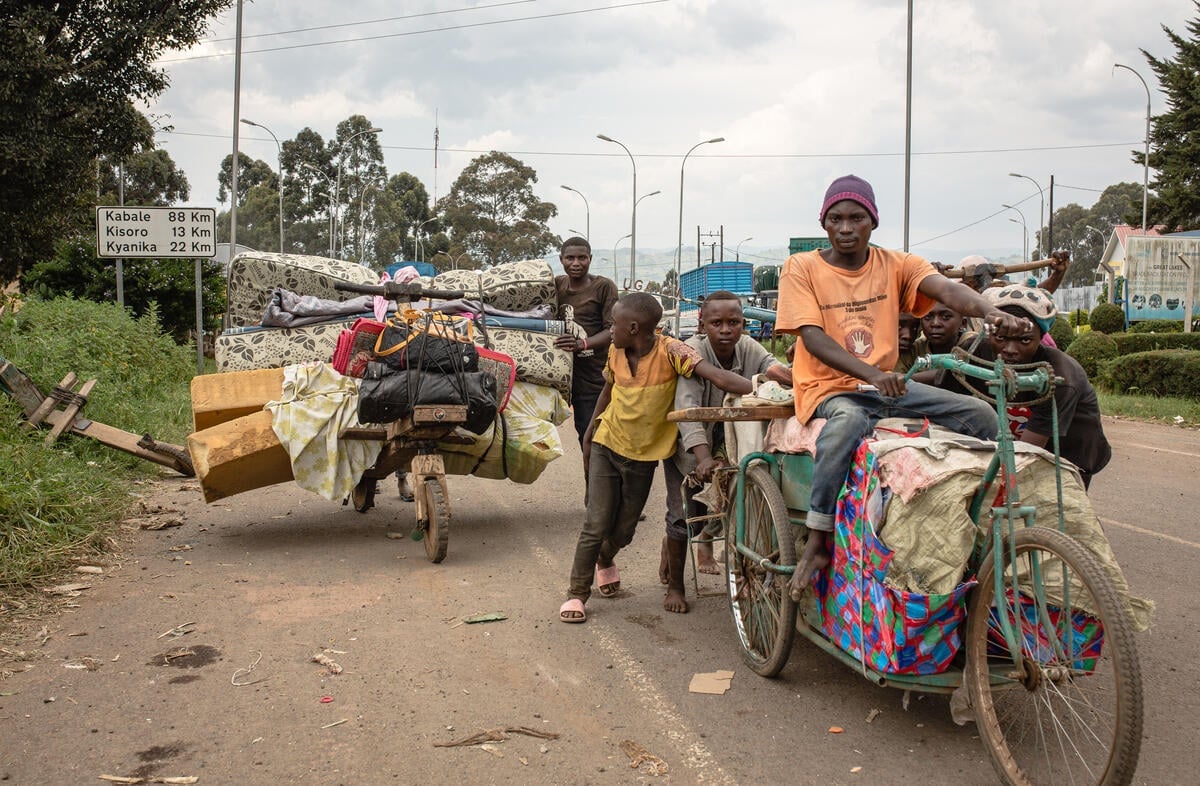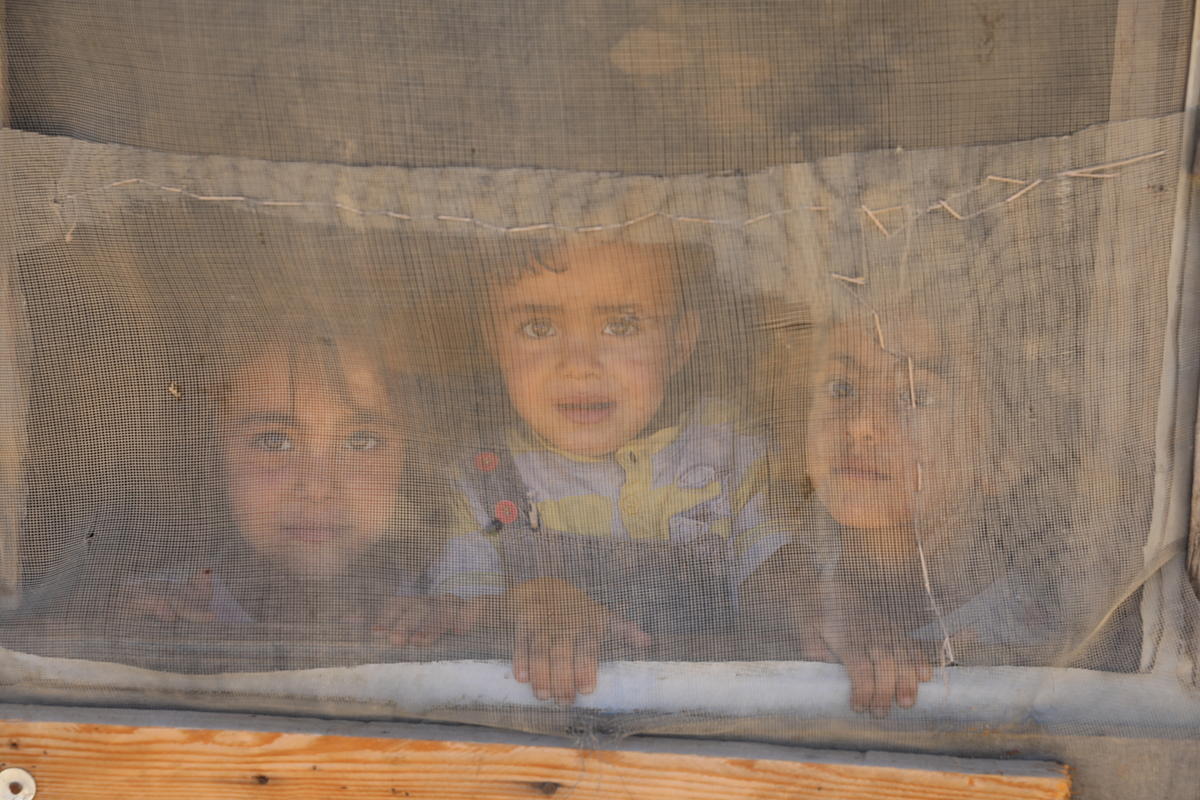Iranian Kurd refugees leave for Sweden; hundreds remain in no man's land
Iranian Kurd refugees leave for Sweden; hundreds remain in no man's land

AMMAN, Jordan, Dec 10 (UNHCR) - For more than a year and a half, they had lived under tents in the inhospitable desert of the no man's land between Jordan and Iraq. In the early hours of Thursday, waiting for the plane that was to take them to their new life in Sweden, the group of 185 Iranian Kurd refugees at Amman airport could hardly believe their luck.
"I am finally going to live as a human being again," said Salim Kare, a father of five who had fled Iran during the start of the Khomeiny era. "We were taught about the life, the schools, the laws in Sweden. When I arrive in Sweden, in Advalla, the place chosen for me, I will live like a Swede."
The 185 were part of a group of 387 Iranian Kurds who were accepted for permanent resettlement in Sweden. The first 202 travelled to Stockholm late last month. Until only a few weeks ago, they had all been living under tents in the no man's land where they had become stuck when they tried to flee Iraq and leave refugee life behind in the spring of 2003. Most had spent almost a quarter of a century in Al Tash refugee camp, near Ramadi in Iraq, after fleeing Iran in the aftermath of the Islamic Revolution there.
Salim has spent more than half of his life as a refugee. Surrounded by heaps of luggage, he did nothing but smile in anticipation of his new life.
"We are happy to go, to start a new life, to learn mechanics and art," said brothers Payman Saiful, 22, and Zaman, 27. "But we are sad about the ones we are leaving behind in that horrible place, no man's land. It is not fair, they should get a chance too. UNHCR should do their best."
There are still 741 refugees, 664 of whom are Iranian Kurds, stuck in the no man's land, while 137 Palestinians are still at the Ruweished camp, some 60 km inside Jordan. In both locations, refugees have been living under very harsh conditions since the spring of 2003, staying under tents in a desert area subject to extreme climatic variations. They now face a second winter of freezing temperatures with no immediate solution in sight to help them.
For the past one-and-a-half years, UNHCR has been calling on the generosity of countries around the world to help those stranded refugees. The agency has submitted 880 cases for resettlement to such countries as the United States, Australia, Ireland and the Scandinavian countries. To date, despite the generosity of Sweden and other countries, hundreds of these requests remain pending.
UNHCR also wrote to many Arab countries requesting them to grant shelter, even on a temporary basis, to Palestinian refugees stranded at the Jordanian border. Last year, Jordan itself agreed to give temporary asylum to 386 Palestinians with Jordanian spouses; while 250 Palestinians chose to leave Ruweished to go back to Iraq. The refugee agency has undertaken to assist countries with the financial cost of hosting Palestinian refugees and hopes for a positive reaction from Arab states.
"We can only do our best and we have been doing it for a long time," said Jacqueline Parlevliet, UNHCR Jordan's senior protection officer. "We have submitted cases to many countries in and outside the region. We can do little more than draw attention to the desperate needs of these refugees, highlight their suffering and call for help in finding a solution for them. Unfortunately we do not have the power to resettle them elsewhere, only nation states can take that decision."
A decision can make the difference between a life full of opportunities and a hopeless future. In Amman Airport on Wednesday night, it was the children who were the most excited to leave.
"When we arrive in Sweden, I will send my daughter back to school," said Karim Kosadi, surrounded by his five children. His daughter is so happy, she cannot wait to leave. "I want to learn English and Swedish, and everything," she interrupted. "In the camp I did not have the chance to learn anymore, and I have felt frustrated ever since."
Next to her, a little baby girl gazed around the messy departure hall with a serious look on her face.
"Sonia was born in the no man's land, one year and four months ago, she was the first baby born there," her mother said. "Nowadays all she says is Lolo, the town we are heading for in Sweden."
Sonia is young enough that she will not even remember her life as a refugee; she will only be reminded by her parents of the years they spent in the camps. She has the chance of a normal life in a country she can call home. Dozens of children still in the no man's land are waiting for a similar chance.
By Astrid van Genderen Stort in Jordan


